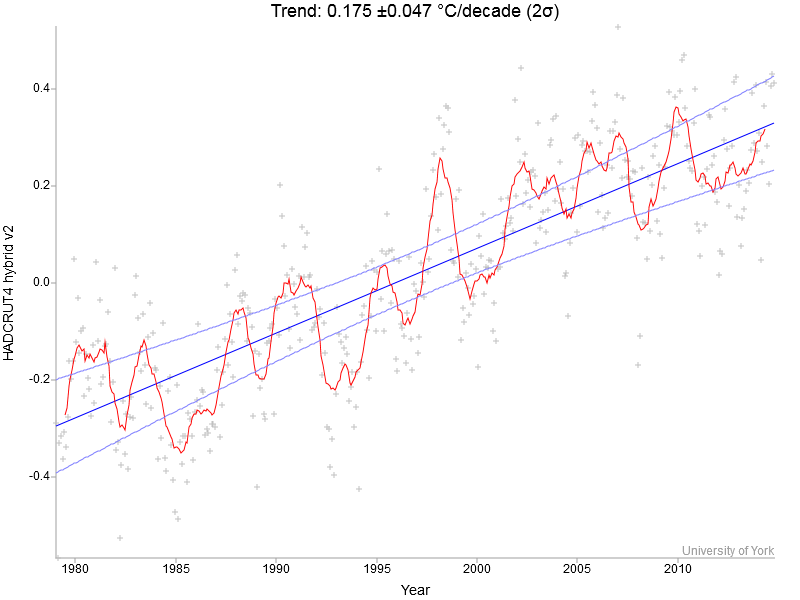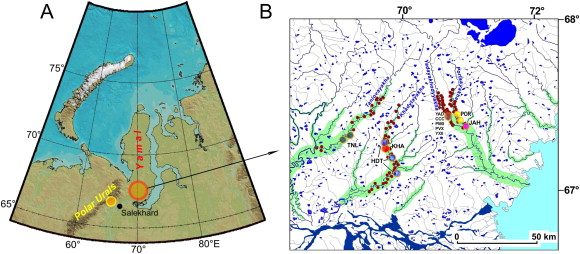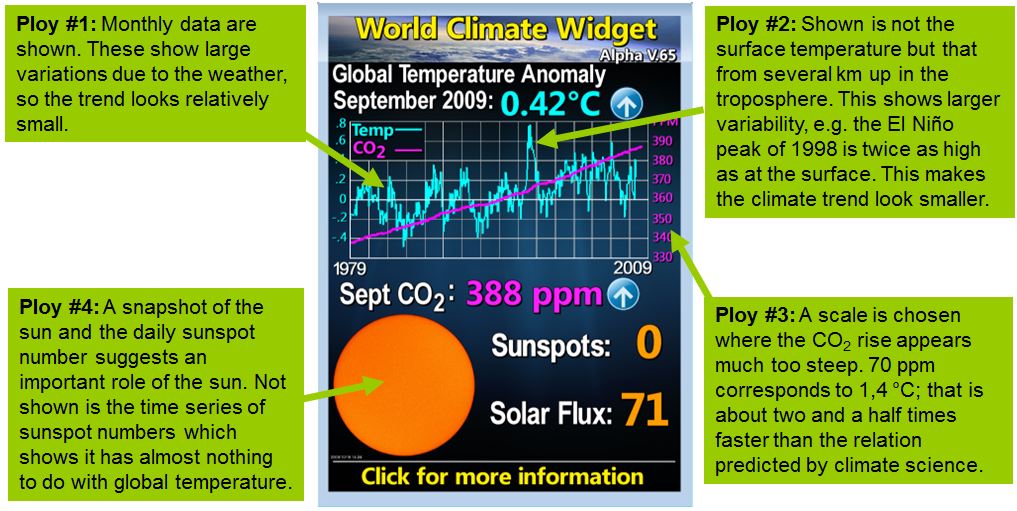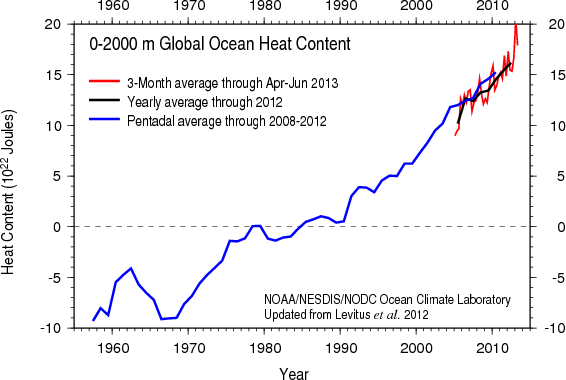Anyone reading pundits and politicians pontificating profusely about climate or environmental science will, at some point, have come across the “volcano gambit”. During the discussion they will make a claim that volcanoes (or even a single volcano) produce many times more pollutant emissions than human activities. Often the factor is extremely precise to help give an illusion of science-iness and, remarkably, almost any pollutant can be referenced. This “volcano gambit” is an infallible sign that indicates the author is clueless about climate science, but few are aware of its long and interesting history…
skeptics
Anti-scientists
Ross McKitrick was so upset about a paper ‘Learning from mistakes in climate research’(Benestad et al., 2015) that he has written a letter of complaint and asked for immediate retraction of the pages discussing his work.
This is an unusual step in science, as most disagreements and debate involve a comment or a response to the original article. The exchange of views, then, provides perspectives from different angles and may enhance the understanding of the problem. This is part of a learning process.
Responding to McKitrick’s letter, however, is a new opportunity to explain some basic statistics, and it’s excellent to have some real and clear-cut examples for this purpose.
[Read more…] about Anti-scientists
References
- R.E. Benestad, D. Nuccitelli, S. Lewandowsky, K. Hayhoe, H.O. Hygen, R. van Dorland, and J. Cook, "Learning from mistakes in climate research", Theoretical and Applied Climatology, vol. 126, pp. 699-703, 2015. http://dx.doi.org/10.1007/s00704-015-1597-5
Hiatus or Bye-atus?
Guest commentary by Stephan Lewandowsky, James Risbey and Naomi Oreskes
The idea that global warming has “stopped” has long been a contrarian talking point. This framing has found entry into the scientific literature and there are now numerous articles that address a presumed recent “pause” or “hiatus” in global warming. Moreover, the “hiatus” also featured as an accepted fact in the latest IPCC report (AR5). Notwithstanding its widespread use in public and apparent acceptance in the scientific community, there are reasons to be skeptical of the existence of a “hiatus” or “pause” in global warming [Ed: see also this previous post]. We have examined this issue in a series of three recent papers, which have converged on the conclusion that there is not now, and there never has been, a hiatus or pause in global warming.
Bjørn Lomborg, just a scientist with a different opinion?
Bjørn Lomborg is a well-known media personality who argues that there are more important priorities than reducing emissions to limit global warming. In a recent controversy centering on him, the Australian government (known for its contradictory position on climate change) offered the University of Western Australia (UWA) $4 million to make Lomborg professor – which UWA first accepted, but then after massive protest from its staff and students refused. The Australian government was quick to label it a “freedom of speech” issue that Lomborg should get a university position, and vowed to find another university that would host him. However, free speech doesn’t guarantee everyone a university position; there are also academic qualifications required.
A translation of this post in Spanish is available here.
[Read more…] about Bjørn Lomborg, just a scientist with a different opinion?
Let’s learn from mistakes
The publication ‘Learning from mistakes in climate research’ is the result of a long-winded story with a number of surprises. At least to me.
I have decided to share this story with our readers, since it in some aspects is closely linked with RealClimate.
The most popular deceptive climate graph
The “World Climate Widget” from Tony Watts’ blog is probably the most popular deceptive image among climate “skeptics”. We’ll take it under the microscope and show what it would look like when done properly.
So called “climate skeptics” deploy an arsenal of misleading graphics, with which the human influence on the climate can be down played (here are two other examples deconstructed at Realclimate). The image below is especially widespread. It is displayed on many “climate skeptic” websites and is regularly updated.
The “World Climate Widget” of US “climate skeptic” Anthony Watts with our explanations added. The original can be found on Watts’ blog
What would a more honest display of temperature, CO2 and sunspots look like? [Read more…] about The most popular deceptive climate graph
Recent global warming trends: significant or paused or what?
As the World Meteorological Organisation WMO has just announced that “The year 2014 is on track to be the warmest, or one of the warmest years on record”, it is timely to have a look at recent global temperature changes.
I’m going to use Kevin Cowtan’s nice interactive temperature plotting and trend calculation tool to provide some illustrations. I will be using the HadCRUT4 hybrid data, which have the most sophisticated method to fill data gaps in the Arctic with the help of satellites, but the same basic points can be illustrated with other data just as well.
Let’s start by looking at the full record, which starts in 1979 since the satellites come online there (and it’s not long after global warming really took off).
 Fig. 1. Global temperature 1979 to present – monthly values (crosses), 12-months running mean (red line) and linear trend line with uncertainty (blue) [Read more…] about Recent global warming trends: significant or paused or what?
Fig. 1. Global temperature 1979 to present – monthly values (crosses), 12-months running mean (red line) and linear trend line with uncertainty (blue) [Read more…] about Recent global warming trends: significant or paused or what?
What ocean heating reveals about global warming
The heat content of the oceans is growing and growing. That means that the greenhouse effect has not taken a pause and the cold sun is not noticeably slowing global warming.
NOAA posts regularly updated measurements of the amount of heat stored in the bulk of the oceans. For the upper 2000 m (deeper than that not much happens) it looks like this:
Change in the heat content in the upper 2000 m of the world’s oceans. Source: NOAA
[Read more…] about What ocean heating reveals about global warming
A new experiment with science publication
A while ago, I received a request to publish a paper on a post that I had written here on RealClimate, exposing the flaws in the analysis of Humlum et al., (2011).
Instead of writing a comment to one paper, however, I thought it might be useful to collect a sample of papers that I found unconvincing (usual suspects), and that have had a fairly high public profile.
[Read more…] about A new experiment with science publication
References
- O. Humlum, J. Solheim, and K. Stordahl, "Identifying natural contributions to late Holocene climate change", Global and Planetary Change, vol. 79, pp. 145-156, 2011. http://dx.doi.org/10.1016/j.gloplacha.2011.09.005
Yamal and Polar Urals: a research update
Guest commentary from Tim Osborn, Tom Melvin and Keith Briffa, Climatic Research Unit, UEA
Records of tree-ring characteristics such as their width (TRW) and density (usually the maximum density of the wood formed towards the end of the growing season – the “maximum latewood density” – MXD) are widely used to infer past variations in climate over recent centuries and even millennia. Chronologies developed from sites near to the elevational or latitudinal tree lines often show sensitivity to summer temperature and, because of their annual resolution, absolute dating and relatively widespread nature, they have contributed to many local, continental and hemispheric temperature reconstructions. However, tree growth is a complex biological process that is subject to a range of changing environmental influences, not just summer temperature, and so replication, coherence and consistency across records and other proxies are an important check on the results.
Tree-ring records have greater replication (both within a site and between nearby sites) than other types of climate proxy. Good replication helps to minimise the influence of random localised factors when extracting the common signal, and it also allows the comparison of information obtained from different independent sets or sub-sets of data. If independent sets of data – perhaps trees with different mean growth rates or from different sites – show similar variations, then we can have greater confidence that those variations are linked to real variations in climate.

In a new QSR paper (Briffa et al., 2013), (BEA13) we have used these approaches to re-assess the combined tree-ring evidence from the Yamal and Polar Urals region (Yamalia) of northern Siberia, considering the common signal in tree-growth changes at different sites and in subsets of data defined in other ways. Together with our Russian colleagues and co-authors, we have incorporated many new tree-ring data, to increase the replication and to update the chronology to 2005 and have reassessed the inferences about summer temperature change that can be drawn from these data. The paper is published as an open-access paper (no paywall) and supplementary information including the raw tree-ring and instrumental temperature data are available from our website.
[Read more…] about Yamal and Polar Urals: a research update
References
- K.R. Briffa, T.M. Melvin, T.J. Osborn, R.M. Hantemirov, A.V. Kirdyanov, V.S. Mazepa, S.G. Shiyatov, and J. Esper, "Reassessing the evidence for tree-growth and inferred temperature change during the Common Era in Yamalia, northwest Siberia", Quaternary Science Reviews, vol. 72, pp. 83-107, 2013. http://dx.doi.org/10.1016/j.quascirev.2013.04.008

